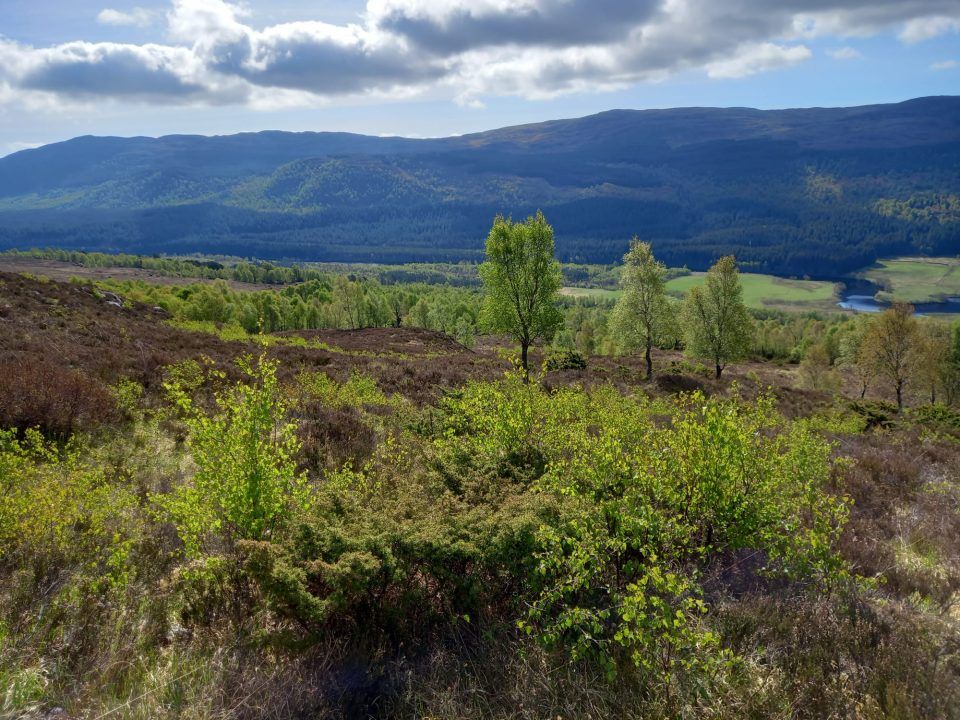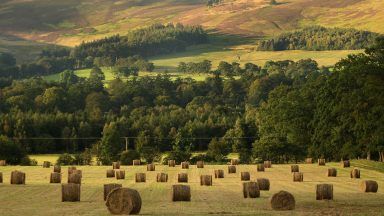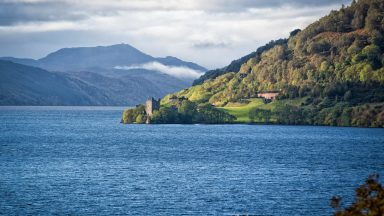A Highland forest has become the first in the UK to receive special European protection for its unique genetic diversity.
The native juniper and silver birch woodlands at Trees for Life’s Dundreggan rewilding estate near Loch Ness have been designated as official Gene Conservation Units.
The European status is only given to long-standing, naturally occurring tree populations that show distinct local adaptation.
It’s a UK-first for any juniper forest and recognises the 10,000-acre site in Glenmoriston as internationally significant for conserving genetic diversity in native species.
The designation forms part of a continent-wide network overseen in the UK by Forest Research, aiming to safeguard the genetic resilience of key tree populations against threats such as climate change, pests and disease.
Gwen Raes, Dundreggan estate manager, said: “This designation underlines why letting our ancient woodlands grow back naturally is so important to us at Dundreggan, and it celebrates the remarkable remnants of naturally occurring and locally adapted juniper and silver birch that still survive on the estate.
“Through this designation and further management, we aim to ensure these unique woodlands secure the extra care and attention they need, so they are protected and enhanced going forward.”
The unusually high rainfall at Dundreggan – rare for juniper habitats – and its position at the western edge of silver birch’s natural range have contributed to the genetic uniqueness of these trees.
Forest Research scientists believe the species at the site have evolved over generations, making them valuable on both UK and European levels.
Tom Sim, the scientist responsible for registering the UK’s Gene Conservation Units, said the trees’ natural origins and adaptation make them genetically distinct.
“They have likely adapted to their local conditions over many generations,” he said.
“As a result, we would expect the stands to be representative of distinct genetic variation for each species at a UK and European level.”
The estate employs a “dynamic conservation” approach, encouraging natural regeneration to help the trees continue adapting. The designation means ongoing monitoring to protect and enhance their long-term survival.
Juniper, more common in drier eastern parts of Scotland, supports a wide variety of wildlife and plays a role in gin production. Silver birch, fast-growing and nutrient-rich, supports over 300 insect species and contributes to healthy soils.
The Dundreggan Rewilding Centre offers visitors access to the woodlands via a range of forest trails, including the accessible Juniper Path. The lower part of the estate is home to around 50,000 juniper and 80,000 silver birch trees.
Trees for Life says the designation is a milestone in its mission to restore Scotland’s wild forests for nature, people, and climate.
Follow STV News on WhatsApp
Scan the QR code on your mobile device for all the latest news from around the country


 Trees for Life
Trees for Life


























